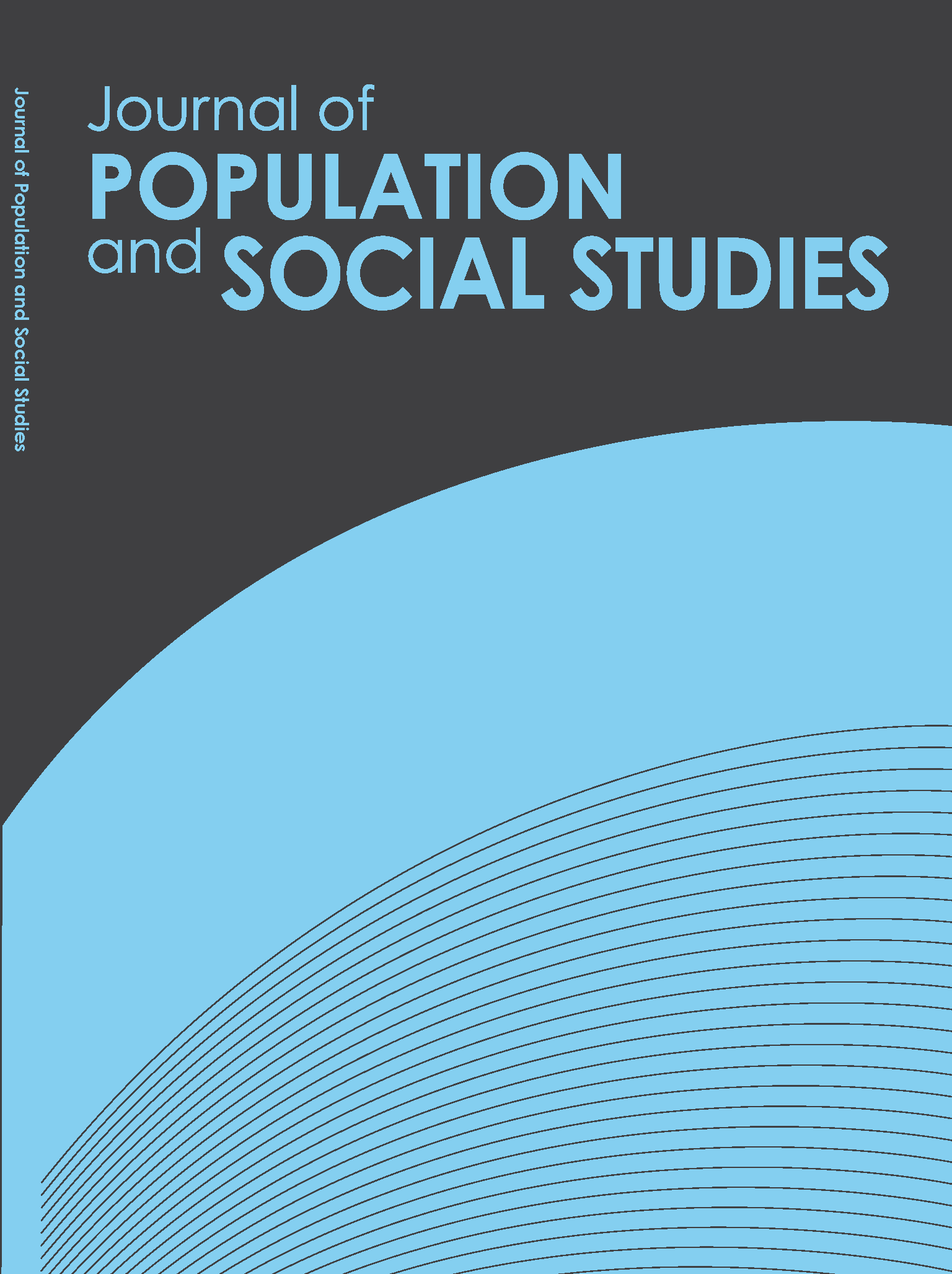The Future of Family Support for Thai Elderly: Views of the Populace
Main Article Content
Abstract
Article Details
References
• Chen, Y., & Thompson, A.E. (2010). Understanding Factors That Influence Success of Home- and Community-Based Services in Keeping Older Adults in Community Settings. Journal of Aging and Health, 22 (3): 267-291.
• Engelmajert, P. & Izuhara, M. (2010). Spiritual debts and gendered costs, chapter 7 in Misa Izuhara, Ageing and International Relations: Family Reciprocity from a Global Perspective. Portland, OR: The Policy Press.
• Foundation of Thai Gerontology Research and Development Institute. (No date). Situation of the Thai Elderly 2010. Bangkok: Foundation of Thai Gerontology Research and Development Institute.
• Knodel, John & Chayovan, N. (2008). Population Ageing and the Well-being of Older Persons in Thailand: Past Trends, Current Situation and Future Challenges. Population Ageing Paper 5, UNFPA Thailand and Asia and the Pacific Regional Office, Bangkok.
• Knodel, J. & Chayovan, N. (2012). "Intergenerational Family Care for and by Older People in Thailand." International Journal of Sociology and Social Policy 32(11): 682 – 694.
• Knodel, J., Chayovan, N. & Prachuabmoh, V. (Forthcoming). The Situation of Older Persons in Thailand: Evidence from the 2011 Survey of Older Persons. Chiang Mai: HelpAge International East Asia/Pacific.
• Knodel, J., Saengtienchai, C. & Sittitrai, W. (1995). The living arrangements of elderly in Thailand: views of the populace. Journal of Cross-Cultural Gerontology, 10, 1, 79-111.
• Knodel, J., Chayovan, N. & Prachuabmoh, V. (2011). Impact of Population Change on Well-Being of Elderly in Thailand, chapter 3 in Gavin Jones and Wassana Im-em (ed.), Impact of Demographic Change in Thailand, pp.35-63. Bangkok: UNFPA.
• Litwak, E. & Kulis, S. (1987). Technology, proximity, and measures of kin support. Journal of Marriage and the Family, 49, 3, 649-61.
• National Statistical Office (NSO). (2007). Survey on Knowledge and Attitudes on Elderly, 2007. Bangkok: National Statistical Office (in Thai).
• National Statistical Office (NSO). (2011). Survey on Knowledge and Attitudes on Elderly, 2011. Bangkok: National Statistical Office (in Thai).
• Phillips, H. (1965). Thai Peasant Personality. Berkeley: University Of California Press.
• Prasartkul, P., Vapattanawong, P. & Thongthai, V. (2011). Fertility Transition and Its Impact, chapter 2 in Gavin Jones and Wassana Im-em (ed.), Impact of Demographic Change in Thailand, pp.17-33. Bangkok: UNFPA, 2011.


